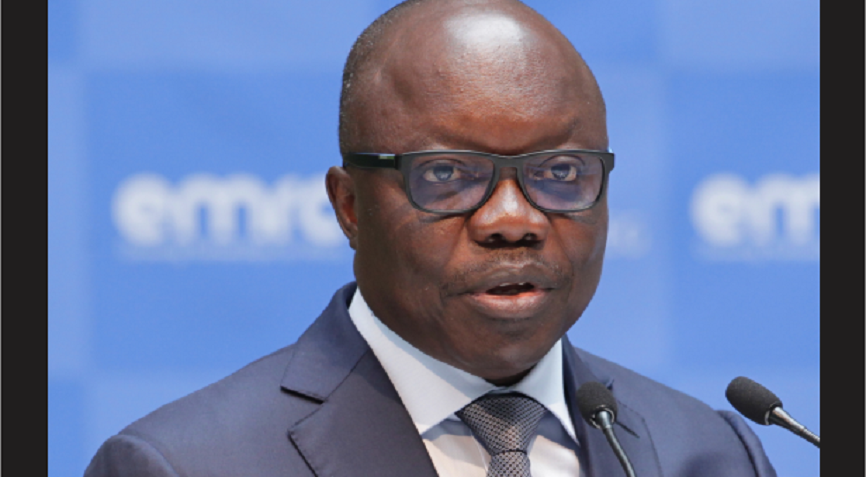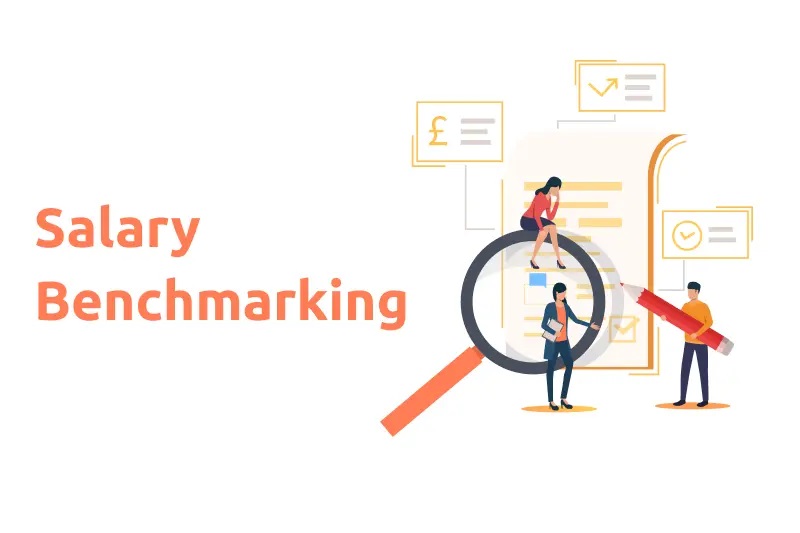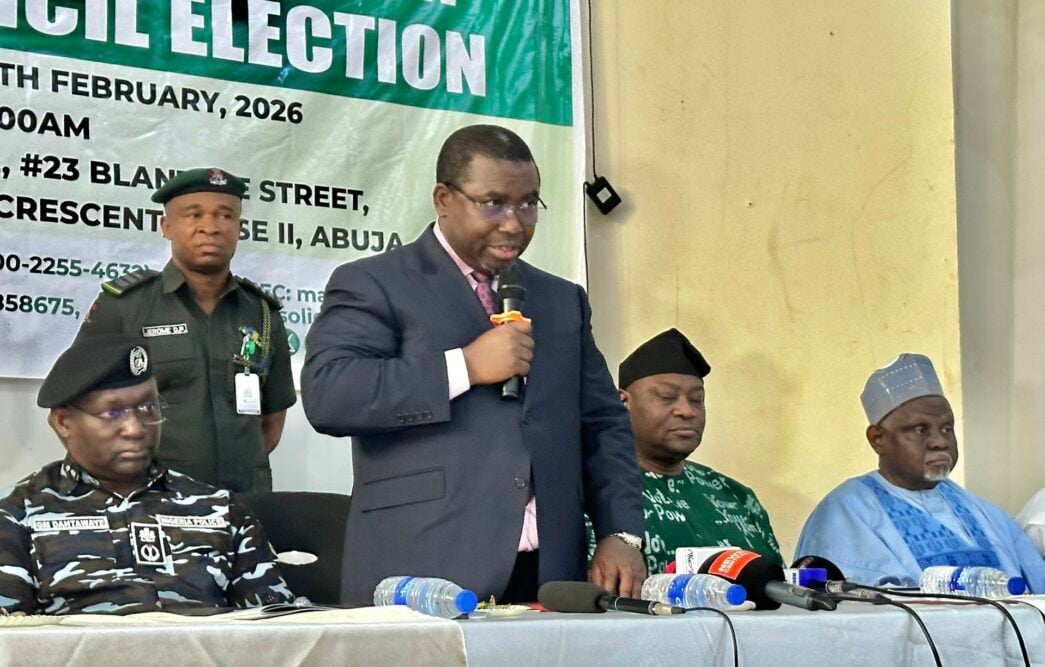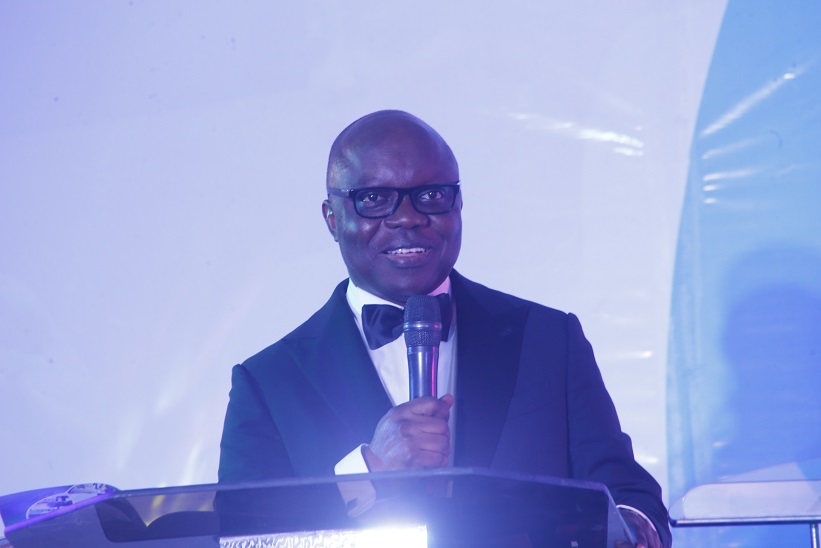General
Real Reasons for my 2019 Senatorial Ambition—Uduaghan

By Dipo Olowookere
Former Governor of Delta State, Dr Emmanuel Eweta Uduaghan, has explained why he wants to be at the upper chamber of the National Assembly next year.
According to him, he wants to represent Delta South Senatorial District at the Senate in 2019 because of his desire to pursue quality legislation that will lead to the end of the crisis in the Niger Delta region.
The medical doctor, who left indelible marks in the state after his eight-year rule as a governor, said in a media chat recently that he would soon officially declare his intention to contest the senatorial seat.
In his words, “I have not declared but I have decided to run. The official declaration is going to be very soon.”
Dr Uduaghan, who was instrumental to the emergence of the incumbent senator representing Delta South, Mr James Manager 15 years ago, also said he withdrew from the race in 2015 to ensure that peace reigned in the state as he has always maintained that peace was more important than electoral victories.
He, however, noted that the coast was now clear for him to serve his people.
“Despite the pressure from the good people of Delta South in 2015, I decided to step down, but looking at the horizon now, the issues that caused the security challenges that made me to shelve my ambition in 2015 are no longer there,” the soft-spoken politician said.
Uduaghan, a chieftain of the Peoples Democratic Party (PDP), gave more reasons why he wants to go to the upper chamber of the National Assembly and spoke of his plans for his constituency, the Niger Delta and the entire country.
According to him, without being boastful and in terms of capacity, he had the capacity to do the work of a senator in Delta South Senatorial District, and the experience he garnered over the years as commissioner, Secretary to the state government, governor, among others, had prepared him to serve at the national level.
“I was commissioner for four years under Chief James Ibori and I was close to him. I knew what he was doing in terms of peace issues. I was the first state government official to enter into creeks to meet ex-militant chief, Government Ekpemupolo alias Tompolo in the heart of the Niger Delta as SSG to start negotiating peace with him. I did it severally when I was the governor of Delta State. At one of the outings, it was even the soldiers that pointed AK-47 at me when I was coming back.
“Sometimes, I would come back at night from negotiating peace, so I know the place in and out. I have been there in the day and at night, in fact, at one of them, I was sitting on a chair with about 20 of the boys with their guns, they were drinking, and we were there for three hours negotiating peace. I know the challenges; let me just say this, what we did and what the government has been doing is having what I call two boxes in managing the problems,” he explained.
The former governor said the first was that of engagement, as he used his influence then to mobilize religious leaders, traditional rulers and the youths to engage the boys in the creek in dialogue.
“We had the other box of enforcement; that is, using the military, the army, the police, navy, etc. One will think that with the two boxes, that would be enough to deal with the problems, but they are still there and re-occurring in different forms, some criminality and some genuine agitation; we still have the Niger Delta Avengers bursting pipelines; sometimes, we have those hijacking boats and sometimes ethnic quarrels,” he said.
According to Uduaghan, from his experience, the military, as an enforcement body was not a permanent solution to the problems in the Niger Delta as they were not very familiar with the terrain, “so, when the thing is really happening, it requires mobilizing the young people to show them the terrain or to prevent the crisis.
“For us to move forward, we must have an enforcement body that includes the community; especially the youths in the community, since they know the terrain. It is easier for people in that area to try and carry out enforcement or execute security challenges; it is easier for people in that area to know those who are involved in illegal bunkering. There are two parts to it, there is the part of genuine agitation, which has now been mixed with criminality and the criminality seems to have overshadowed the genuine agitation.
“To deal with it, we need the local people to be involved in the security arrangement and that will require legislation. The Waterway Security Committee I put up for instance, there is no law backing it up, so we need to put up laws that will help us in moving forward in solving the Niger Delta crisis.”
The Itsekiri-born politician added that there were lots of projects abandoned in the Niger Delta, and specific laws were needed to revamp these projects. If there were previous laws, he said, there was the need to bring them out and tailor them to meet what is happening in the Niger Delta.
“All these engagements we are doing, we need to promulgate laws backing the engagements, there is a lot of environmental damages going on. There are laws backing the environment, but we need to tidy them up. What I have done is to get a team of lawyers, they have looked at the laws and brought them out as it affects issues in the Niger Delta,” he said.
He lamented that since the crises in the Niger Delta, nobody has been prosecuted or brought to book.
“Nobody has been prosecuted so far. First of all, you cannot catch them and the people that are supposed to catch them don’t know how to catch them. I am going there to put up an enforcement body of people who know them and can get them and take them to court. If we are not serious of law and order in the Niger Delta, we will continue to have crisis.
“Right now, there is no law and order in the Niger Delta and we need to come out with and remind ourselves of the existing laws and tailor them towards the issues in the Niger Delta so that we can have permanent peace. A lawmaker is to make law and that will be my cardinal point. Also, there is the issue of attracting things to your area. There are very few people in the National Assembly that I don’t know. I have the capacity to attract things to my area more than anybody on the field today.
“Also, Nigeria has invested in me. Being in government for 16 years is a lot of investment. I think I should pay back by going to serve at the national level,” he explained.
The former number one citizen of Delta State, an exponent of modular refineries and development of the non-oil sector, promised not to collect his pension as a former governor while in senate if given the mandate by his people.
He also pledged to carry his constituents along by involving them in the lawmaking process and holding town hall meetings every six months.
“I am going to sign a contract with my people; the Senator-Citizens Contract. I have a group of lawyers who are already working on it,” he disclosed.
Asked his chances of picking the PDP ticket and eventually winning the senatorial election, Uduaghan, 63, sounded upbeat, noting that he is a grassroots politician well known and trusted by the people. He promised to justify the confidence reposed in him by ensuring them the very best representation if they give him the mandate to represent them in the Senate in 2019.
Already, various groups and individuals in the Delta South Senatorial District are waiting with bated breath to see their amiable son of the soil in the race as they believe he will replicate in their constituency his magic that turned around entire Delta State.
General
Salary Benchmarking To Ensure Competitive Compensation

Salary benchmarking is the systematic process of comparing an organization’s pay rates, bonus programs, and total rewards against market standards. This article walks through why benchmarking matters, how to prepare and run an analysis, the best data sources and tools, and how to turn findings into defensible pay structures and ongoing processes.
Why Salary Benchmarking Matters For Online Businesses And Agencies
Without benchmarking, organizations risk three costly outcomes: underpaying (leading to high turnover and loss of institutional knowledge), overpaying (inflating fixed costs and reducing agility), or misallocating compensation across roles (creating internal inequities and morale problems).
For agencies that pitch retainer-driven services, predictable labor costs tied to market rates enable healthier margins and clearer pricing decisions. For in-house ecommerce teams, benchmarking supports workforce planning when launching new product lines or scaling paid acquisition efforts.
Finally, benchmarking is not only financial: it signals professionalism to candidates.
Key Data Sources And Tools For Accurate Benchmarks
High-quality benchmarking blends public data, commercial platforms, and human intelligence.
Public Government And Aggregated Salary Data
Bureau of Labor Statistics (BLS) or national equivalents provide reliable occupational wage ranges, useful for baseline comparisons and compliance checks.
Industry Surveys, Salary Platforms, And Niche Reports
Platforms such as Payscale, Glassdoor, LinkedIn Salary, and specialized reports for marketing and tech roles give role- and location-specific distributions.
Recruiter Intelligence And Peer Networks
Recruiters and hiring agencies provide real-time insight into candidate expectations and accepted offers. Professional networks, Slack communities, and agency owner peer groups can also offer current market anecdotes that databases miss.
Internal Payroll Data And Turnover Metrics
Historical payroll, hiring velocity, offer-acceptance rates, and exit interview themes help normalize market data against internal realities. Using multiple inputs helps find a defensible midpoint.
How To Conduct A Benchmark Analysis Step By Step
A repeatable process keeps benchmarking actionable and defensible.
- Gather data from at least three sources: one government/aggregate, one commercial salary platform, and one recruiter/peer input.
- Normalize data for location and experience. Convert salaries to equivalent cost-of-living or remote-adjusted values if the company has distributed teams.
- Adjust for total compensation. Include expected bonus, commissions, equity, and benefits to compare total rewards, not just base pay.
- Build a comparison table with target percentiles (25th, 50th, 75th) for each role and highlight gaps vs. current pay.
- Prioritize changes. Use a matrix that weighs business impact, retention risk, and budget feasibility to recommend immediate, near-term, and deferred adjustments.
This framework produces a clear narrative: where pay is behind, how much closing the gap will cost, and which adjustments will most protect revenue and client delivery.
Translating Benchmark Results Into Pay Structures And Budgets
Benchmark results must become predictable pay structures.
Normalize Data For Location, Experience, And Role Level
Apply consistent location multipliers and level definitions (junior, mid, senior, lead) so internal fairness stands up to scrutiny.
Build Pay Bands, Ranges, And Target Percentiles
Create bands with minimums, midpoints, and maximums tied to the chosen target percentiles. Bands help managers make consistent offer decisions and reduce bias.
Model Total Cost Of Hire And Budget Impact
Factor in employer taxes, benefits, onboarding costs, and ramp time. Present scenarios that show both absolute costs and return-on-investment when a higher-paid senior reduces client churn or improves campaign ROI.
Design Salary Bands, Bonus Structures, And Noncash Benefits
Consider sales- or performance-linked bonuses for account managers and revenue-attributed roles. Align Compensation To Performance, Retention, And Career Paths
Tie movements within bands to objective competency milestones (e.g., “strategic link acquisition that improves DR by X points” or “reduced time-to-rank for client cohort”), creating transparent merit progression that drives retention.
Communicating, Implementing, And Ensuring Pay Equity
Change management is as important as the numbers.
Gain Leadership Buy-In And Set Change Management Steps
Present benchmarking findings with clear ROI scenarios and phased implementation options. Leadership will respond to cost/benefit clarity, show how targeted raises stabilize revenue-generating roles.
Communicate Changes To Employees And Handle Pushback
Be transparent about methodology and timelines. Provide managers with scripts explaining why adjustments are happening and how employees can progress to higher bands.
Document Compliance, Pay Equity, And Recordkeeping Practices
Maintain audit-ready records of data sources, decision rationales, and salary matrices. Regularly run pay-equity checks by gender, race, and tenure to avoid legal and moral risks.
Thoughtful communication reduces rumors and ensures raises are seen as strategic investments, not arbitrary rewards.
Ongoing Monitoring: KPIs, Review Cadence, And Market Adjustments
Benchmarking isn’t a one-off. It requires monitoring and simple KPIs.
Track Competitive Positioning, Turnover, And Time To Fill
KPIs should include average comp vs. market percentile, voluntary turnover by role, offer-acceptance rate, and time-to-fill for critical positions. These metrics signal when the market has shifted.
Schedule Regular Reviews And Trigger-Based Market Rechecks
A typical cadence is an annual formal benchmark with quarterly spot checks for priority roles. Trigger-based rechecks, when turnover spikes, when offer-acceptance drops below a threshold, or when the market is disrupted, keep pay competitive between formal cycles.
With a small set of KPIs and a clear review cadence, agencies and online businesses can avoid reactive panic hires and keep compensation aligned with strategy and market reality.
Conclusion
Salary benchmarking equips online businesses and agencies to hire and retain the right talent without sacrificing profitability. When done well, benchmarking clarifies where to invest, makes offers defensible, and reduces turnover among roles that materially affect client outcomes and rankings.
General
BPP Confirms N1.1trn Savings from Procurement Reforms in 2025

By Adedapo Adesanya
The Bureau of Public Procurement(BPP) said the ongoing procurement reforms saved the federal government over N1.1 trillion between January and December 2025.
The Director-General of the bureau, Mr Adebowale Adedokun, revealed this while defending the agency’s 2026 budget before the Senate Committee on Public Procurement in Abuja on Thursday.
The bureau also reported reduced contract approval timelines, additional cost savings, and tougher sanctions imposed on erring contractors and non-compliant government officials.
Mr Adedokun appealed for increased budgetary allocation in 2026 to enhance service delivery, create jobs, and strengthen institutional capacity for procurement oversight.
He further revealed that the bureau received N4.032 billion in 2025 and sought higher funding to reinforce anti-corruption efforts under the administration of President Bola Tinubu.
Earlier, the Chairman of the Senate Committee, Mr Olajide Ipinsagba, a lawmaker from Ondo North, underscored the bureau’s strategic role in driving socioeconomic development and promoting fiscal discipline.
Mr Ipinsagba assured the agency of legislative support while urging strict accountability and prudent utilisation of public funds allocated for its operations.
BPP reforms were committed to deepening transparency, compliance, and efficiency in Nigeria’s public procurement system. Some of them include adherence to a 21-day timeline, as mandated by the Public Procurement Act 2007. Also, the BPP is required to review cases, issue a written decision within 21 working days of receiving the complaints, and state the corrective actions, reasons for rejection, or remedies granted.
There are also plans to streamline approval processes, standardise documentation, and automate workflows to ensure timely and transparent procurement decisions.
General
FCT Council Elections: Police Impose 12-Hour Curfew

By Adedapo Adesanya
The Federal Capital Territory (FCT) Command of the Nigeria Police Force (NPF) has announced a 12-hour restriction on movement across Abuja and its environs ahead of the council elections scheduled for Saturday, February 21, 2026.
In a statement, the Police Public Relations Officer of the FCT Command, Mrs Josephine Adeh, said the movement will be restricted to ensure security and the smooth conduct of the polls.
“The Commissioner of Police, FCT Command, Miller G. Dantawaye, psc., has announced a restriction of movement across the Federal Capital Territory from 6:00 AM to 6:00 PM on Saturday, 21st February, 2026, in view of the scheduled Area Council Elections,” the statement read.
The police clarified that the restriction will apply to all residents, except essential service providers and duly accredited election officials.
The command also called on residents to remain peaceful and cooperate with security agencies.
“The FCT Police Command urges residents to remain peaceful, law-abiding, and cooperate with security agencies to ensure a safe, free, and credible electoral process,” the statement added.
Meanwhile, the FCT Minister, Mr Nyesom Wike, declared Friday a work-free day ahead of the council elections.
In a broadcast, Mr Wike said the decision, approved by President Bola Tinubu, is to enable residents to travel to their communities to vote.
In contrast to the police announcement, the minister declared a separate restriction of movement across the FCT from 8:00 p.m. on Friday to 6:00 p.m. on Saturday, directing security agencies to ensure compliance.
Mr Wike urged residents to turn out in large numbers and conduct themselves peacefully, expressing optimism that the polls would produce leaders who would promote development and stability in the territory.
In the meantime, the Independent National Electoral Commission (INEC) says preparations for the elections are at an advanced stage, with strong voter participation recorded during the PVC collection exercise.
INEC disclosed that 1,587,025 Permanent Voter Cards (PVCs) have been collected across the FCT, representing a 94.4 per cent collection rate out of the 1,680,315 registered voters.
Security agencies have assured residents of adequate deployment across the territory to maintain order, as authorities emphasise the need for a peaceful, free, and credible electoral process.
-

 Feature/OPED6 years ago
Feature/OPED6 years agoDavos was Different this year
-
Travel/Tourism10 years ago
Lagos Seals Western Lodge Hotel In Ikorodu
-

 Showbiz3 years ago
Showbiz3 years agoEstranged Lover Releases Videos of Empress Njamah Bathing
-

 Banking8 years ago
Banking8 years agoSort Codes of GTBank Branches in Nigeria
-

 Economy3 years ago
Economy3 years agoSubsidy Removal: CNG at N130 Per Litre Cheaper Than Petrol—IPMAN
-

 Banking3 years ago
Banking3 years agoSort Codes of UBA Branches in Nigeria
-

 Banking3 years ago
Banking3 years agoFirst Bank Announces Planned Downtime
-

 Sports3 years ago
Sports3 years agoHighest Paid Nigerian Footballer – How Much Do Nigerian Footballers Earn
















